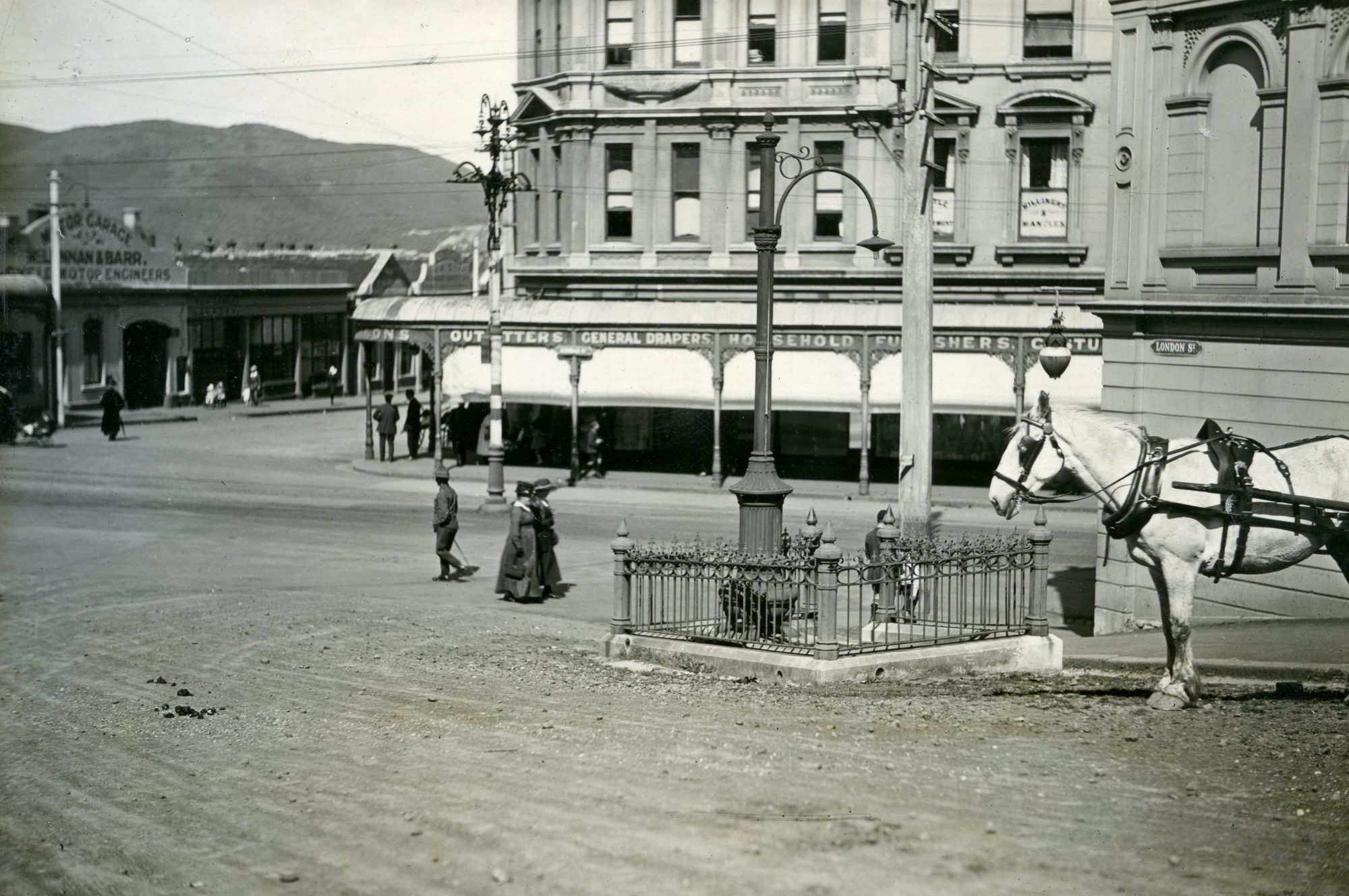As with other cities, Dunedin City Council employed attendants to run and maintain the underground conveniences. The Attendants were employed by Dunedin’s local authority as early as 1861. The Dunedin Town Board employed a man to clean the Princes Street and Jetty Street urinals, although this was largely ineffective judging from the continual complaints!
The construction of the undergrounds enabled attendants to be stationed onsite to clean, maintain, and attend to the public. The attendants had to be “old servants of the corporation” or widows of ex-employees.

There were four male and two female attendants initially stationed in the Octagon conveniences and male attendants at the Custom House Square conveniences, who worked shift hours. Dunedin’s other facilities had visiting attendants. The original job applications remain in the Dunedin City Council Archives.

The attendants were essential in keeping the undergrounds in a hygienic state. They also managed behaviour and security within the subterranean spaces. They were required to work 8 hours a day, 7 days a week and received 12 days leave a year on full pay. Their role was essentially “caretakers work and not arduous” reported the Town Clerk in 1912. After World War II returned servicemen were favoured in these roles.
However, the position did come with issues and risks, as this City Engineers report noted in 1919:

There were also incidents where the attendants were assaulted and the Police assisted Council in monitoring the behaviour in and around the underground conveniences.
These staff were always proud of their work in keeping their stations and surrounding areas clean. After the Customhouse (Exchange) undergrounds closed in 1961 the brass plaque and decorations on Cargill’s Monument (which sat just above ground) were very much neglected. An attendant had always polished these!

During and after the 1940s, Dunedin City Council struggled to retain good staff and found it increasingly difficult to employ attendants.

An ongoing issue for the Council was vandalism and misuse that occurred regularly resulting in increasing maintenance costs. The undergrounds were especially vulnerable due to being out of sight.

In 1964, difficulties of employing staff and vandalism led to Council’s decision to discontinue the practice of employing staff to clean the men’s conveniences. A contract cleaning company was employed to clean Dunedin’s toilets instead. The London Street and Customhouse (Exchange) undergrounds had already closed by this date.

